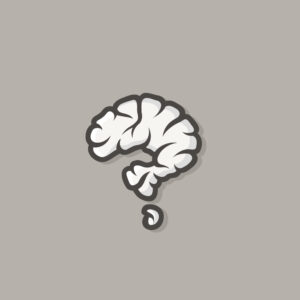
Thaler surmised (with a touch of sarcasm) that he was awarded his Nobel Prize because he and psychologist and prior Nobel Laureate in economics Daniel Kahneman (among other behaviorists) had “discovered the presence of human life in a place not far, far away, where my fellow economists thought it did not exist: the economy.” He asserted that, as a large body of behavioral research has revealed, real-world human beings fail miserably short of the mental facilities of economists’ homo economicus—hardly a surprising claim among thinking economists.
Nonetheless, in his Nobel lecture and other published works, Thaler suggests that economists’ “unreal” mode of thinking about people’s economic decisions would be greatly improved if economists focused on how real people—not their methodological caricatures, dubbed Econs—make decisions in their actual work-a-day worlds. He fervently supports economists adopting behaviorists’ (supposedly) real-world analytical methods, founded on real people’s responses to the choices posed by behaviorists in laboratory and classroom experiments. The subjects’ responses are then aggregated into comparative analyses of mean responses of control and experimental groups, with detected statistical differences constituting revealed insights (with little expressed concerns for the extent of the overlap of groups’ distributions of responses).
Thaler seems confident that behaviorists’ research settings, research subjects, and the questions and problems posed make for more real analytical insights than economists’ deduced and tested hypotheses, founded on their perfect rationality premise. He seems convinced that the more (descriptively) “real” a theory’s premise is, the more powerful the insights.
“[T]hinking must be understood as the most fundamental of economic problems—bounded by the brain’s scarcity constraints—before economists can address all other real-world economic problems.”
Thaler could not be more wrong, precisely for reasons he thinks he is so right. He doesn’t seem to think that a discipline’s methodological construction must, ultimately, adapt to the resource and process limitations of real people’s (and real economists’) own brains. And thinking itself is bound by those evolved economic constraints. Indeed, thinking must be understood as the most fundamental of economic problems—bounded by the brain’s scarcity constraints—before economists can address all other real-world economic problems. Behaviorists seem to have missed how descriptively “real theory” has never been sought by economists because it is out of reach for them, as well as behaviorists. Theory is meant to work within the confines and dictates of the human brain, not the outside real world.
My goal here is ambitious. I seek to explain why economists would be well advised to reject—largely, but not totally—behaviorists’ methodological advice, mainly because their claim of their methods’ greater realness is, at best, disputable, and arguably less real and productive of durable decision insights than economists’ mental models. Psychology, behaviorists’ mother science, is now suffering through a major and widespread replication crisis, which is casting a cloud over psychology’s scientific credibility.
Perfect Rationality, Behaviorists’ Abused Whipping Boy
Behaviorists’ main complaint is with the presumption that people are perfectly rational, or perfect decision makers. In Thaler’s own words:
- Instead of humans, the world described by economists in textbooks is populated by a species referred to as Homo economicus, but I like to just call them Econs. These Econs solve problems like a supercomputer, have the willpower of saints, are free of emotion, and have little regard for their fellow Econs…
- Over the past 40 years,… I have been trying to figure out how to introduce humans into economic theory. We humans are absent minded, tend to be a little overweight, we procrastinate and are notoriously overconfident.
Thaler fortifies his central points by reviewing a sample of a long list of behaviorists’ documented decision irrationalities and cognitive biases. He insists that economists can increase their prediction accuracy—”just as fancy microscopes improve the resolution of images in biochemistry.” (But then, to my reading of his works, he never disputes the accuracy of empirically validated economic predictions, such as, “a price increase will reduce quantity demanded” (as distinct from the implications of the perfect rationality premise—such as, “perfectly rational people will always choose the greater-valued option.”)
In a fit of professional hubris, Thaler (with coauthor Cass Sunstein) makes a methodological leap, adopting the mantle of a choice architect: “Crucially, once we acknowledge that humans are fallible creatures, we can ask how to help them make better decisions,” via “nudges” that are designed by behavioral choice architects who are committed to “libertarian paternalism” (which strikes me as oxymoronic). Thaler and Sunstein are confident that, with their nudges, they will not force anyone to do anything; people will only be pointed in the right direction to achieve their welfare-enhancing ends. But how do Sunstein and Thaler know the ends of so many others when, as they have documented, they surely share the mental frailties of all other human beings? Thaler and Sunstein have, apparently, fallen victim to Frederick Hayek’s fatal conceit, or the presumption that centralized authorities can orchestrate the lives of others whom they do not know and cannot know the complex details of their lives?
Thaler, Sunstein, and other behaviorists seem convinced that they have escaped the documented decision frailties of others and can improve the lives of others without decision problems arising on a massive scale, especially since politics will likely be at work on the design and scope of their nudges.
Sunstein and Thaler seem to think that their documented decision irrationalities and biases are all welfare degrading, which is an analytical non sequitur—and misguided. They and other behaviorists don’t seem to have considered that people have limited and scarce decision-making resources and can rationally decide to improve their welfares by purposefully not making decisions or making less-than-perfect ones (through the adoption of heuristics, which can be riddled with decision mistakes but still can be, on net, welfare enhancing).
Contrary to behaviorists’ convictions, people misplacing their keys or forgetting their parking places can be welfare improving because never doing so can be excessively costly, given limited mental resources and the multitudes of demands, with varying values, competing for those limited resources (as I’ve explained in some detail in The Selfish Brain).
Milton Friedman’s Methodological Point Overlooked
In critiquing economists’ premise, Thaler and his fellow behaviorists seem to have missed a major and, in my way of thinking, crucial methodological understanding of economists’ perfect-rationality premise, incisively drilled home by Milton Friedman in his 1953 methodology essay:
- Economic theory was never meant to be “real” (in the sense of being remotely descriptive) of the “real world,” and neither can it be. Moreover, the implications of a perfect-rationality premise were never intended to be the subject of empirical tests.
All premises are unreal to one extent or another, Friedman understandably asserts. The perfect-rationality premise is hardly descriptive of how people make decisions. Indeed, the premise is demonstrably false on its face: With economists’ presumption of omnipresence of scarcity, perfection of anything—much less decision-making—is out of real-world reach. Moreover, perfect rationality could not have emerged from evolutionary forces, as I’ve explained at length elsewhere. And given the economics of thinking, (evolved rational) people would not choose to perfect the rationality of their decisions, even if they could do so. As covered in The Selfish Brain (with graphics), a rational brain is intent on maximizing its own welfare through its own allocation decisions within the constraints of its scarce resources and the conventional economic laws of diminishing marginal returns and values (which would be in full force when approaching decision perfection). This means that perfect rationality, ever approached, would involve excessive costs (meaning net welfare losses), making perfect rationality inferior in welfare terms to less-than-perfect rational decisions (accompanied by all the irrationalities and biases that behaviorists have documented but misinterpreted)—but also making for another evolutionary fitness advantage of less-than-perfect rationality in human decision making, which suggests that behaviorists have grossly misjudged their research findings.
Starkly put, perfect rationality is a real-world nonstarter because evolutionary forces would simply not have allowed it to evolve because of the waste of resources that would have been required to cope with all incoming sensory information and all decision-making demands and do so fully and without error (especially when the consequences are trivial, or close). Those humans that fell short of perfect decision-making likely had fitness—meaning procreation and survival—advantages over those humans who sought perfection in decision making. Such hypothetical ancestral people seeking perfect decisions would likely have starved to death or have become prey, as they focused on perfect decision making. Modern humans’ constricted view of reality is self-evident in their limited visual, auditory, and olfactory acuity when compared to the acuity of other species (hawks and dogs, for example). If humans could see as well as, say, hawks, their perception of reality (as really is, whatever that is!) would, no doubt, be substantially different.
Science—and economic—methods are incredibly valuable because they enable modern people, with substantial but still limited mental faculties, to pierce in limited ways, the veil evolution has imposed on people’s constricted view of reality as it is, not as we might like it to be or might think it is from our sensory access to it. Thinking enables us to get beyond the confines of our senses and mental resource scarcity. Thinking methods enable people to go beyond what they can perceive and deduce insights that might be missed by observation, concluding, for example, as economists Gary Becker and Kevin Murphy have deduced (counterintuitively), that all demand curves not only slope downward but addictive drugs (contrary presumption of many economists) can (very likely) have elastic long-run demands, precisely because future consumption builds on current consumption.
The hard sciences pierce the veil by adopting a methodology that largely requires precise measurement of objective attributes of the real world (those that can be observed and measured). They avoid, for the most part, touching attributes that are unavoidably subjective (those involving individualized evaluations (both costs and benefits) of objective goods and courses of actions and individually subjectively conceived ends.
Economics can be complimentary to the hard sciences, but to do so it must employ a methodology that parts ways from that of the hard sciences. And to do that, economics must presume people have purposes. If nothing else, people must be presumed to pursue their own ends and maximize their welfare with some consistency, knowing that such a premise cannot be fully met by real people but also that the premise helps them pierce the veil (at least a little and imperfectly) and develop hypotheses that can withstand repeated tests.
Becker and Murphy were able to make the point they did precisely because they sterilized (made unreal by their presuming perfect rationality) their model of human decision-making. As Friedman has explained, economists have used the premise simply as a means of easing the analytics and, at the same time, generating more hypotheses that are better able to withstand empirical tests, leading to more powerful and lasting economic insights. If behaviorists want to discredit economic methodology, they should empirically test economists’ generated hypotheses, such as “hikes in the minimum wage will undercut employment in targeted labor markets.”
To my reading of their literature, they’ve never even tried, and for a good economic reason: Refuting empirically the implications of perfect rationality is a far less demanding (and costly) task than refuting long-tested theoretical predictions.
Conclusion
Behavioral economists have heavily criticized economists’ methods, but I must acknowledge that their criticisms could be viewed as turn-about-is-fair-play. For a century or more, economists spurned the experimental methods of psychologists. In the main, they have doubted that the complexity of people’s real-world interactions in ever-changing market conditions could be replicated in psychologists’ deliberately controlled laboratory experiments.
British economist Lionel Robbins (1898-1984) observed in the 1930s that some government policies might come close to being imposed in ways that approximate psychologists’ controlled experiments, but “it would be very superficial to suppose that the results of these ‘experiments’ can be held to justify a proposition of such wide applicability,” meaning that such experiments would likely constitute a “very fragile body of economic generalizations.” Why? Ever-changing, real-world conditions can’t be even closely replicated in laboratory experiments. If researchers ever tried, drawing valuable insights would be problematic at best, if not impossible.
Conditions in the real world are, simply put, exceedingly complex (which is especially the case when subjective prevalence are allowed), with people having a multitude of motivations and facing immense combinations of affective variables. Moreover, as Robbins stressed, people’s real-world choices are “not between certainties, but rather between a range of estimated probabilities.”
It is likely far more accurate to say that people don’t make decisions (as behaviorists suggest in their experiments), as it is to say they come to decisions with interactions with others and circumstances over time. Real-world uncertainties can be only imperfectly mimicked in labs. In the real world, people must come to imperfectly know, through interactions and experiences, their wants, as well as the relevance of the risks and uncertainties afoot in a multitude of decisions that are often interrelated.
In pointing to the variety of people that economists seek to understand and to the great variety of scarce resources, there is absolutely no way the “real world” can be handled in economic theory. The problem, again, is scarcity, especially the extreme scarcity of the brain’s neurons (and energy), especially long ago, available for thinking.
Simply put, thinking must work within the resource and process constraints of a messy and complicated biological organ as it has evolved over the eons, which means it must think in reduced, simplified forms with methods that have evolved in imperfect ways with serious limitations on what it can accomplished. Thinking must work within the confines and processes inside the brain, which is a totally different “world” than the outside world. Making theory descriptive of the real world is a behaviorist delusion.
Footnotes
[1] Richard H. Thaler, 2017. “From Cashews to Nudges: The Evolution of Behavioral Economics,” Nobel Prize Lecture, December 10.
[2] Although I have serious criticisms of behavioral economics methods, I have sought to develop a path for a slight paradigm shift in economic, centered around what I call “brain-centric economics” and based on an altered construction of the rationality premise. My revision in neoclassical economics enables me to predict many of behaviorists’ decision irrationalities and biases and then leads to market predictions that traditional neoclassical economists have missed. (See my The Selfish Brain A Layperson’s Guide to a New Way of Economic Thinking, 2021. Athens, N.Y.: Cognitive Alley.)
[3] See Staff, n.d. “Replication Crisis,” Psychology Today (as accessed September 25, 2023. See also M. Baker, 2015. “Over Half of Psychology Studies Fail Reproducibility Test,” Nature, August 27; and Brian Nosek, 2015. “Estimating the Reproducibility of Psychological Science,” Science, August 28.
[4] Richard H. Thaler, 2017. “From Cashews to Nudges: The Evolution of Behavioral Economics,” Nobel Prize Lecture, December 10.
[5] Richard H. Thaler, 2017. The Nobel Prize: “Banquet Speech,” December 8.
[6] Richard H. Thaler and Cass R. Sunstein. 2009. Nudge: Improving Decisions about Health, Wealth, and Happiness. New York: Penguin Books.
[7] Richard B. McKenzie, 2021. The Selfish Brain: A Layperson’s Guide to a New Way of Economic Thinking. Athens, N.Y.: Cognitive Alley.
[8] Milton Friedman, 1953. “The Methodology of Positive Economics,” Essays in Positive Economics. Chicago: University of Chicago Press, pp. 3-46.
[9] Richard B. McKenzie, 2024. Rationality Evolved! Why People Have No Choice over Having Choices. Athens, N.Y.: Cognitive Alley.
[10] If addictive drugs’ demands are elastic, then taxes on them can be a more corrective for drug addiction than economists had previously thought. See Gary S. Becker and Kevin M. Murphy, 1988. “A Theory of Rational Addiction,” Journal of Political Economy 96(4):675–700.
[11] Robbins 1935, pp. 74-75.
[12] Robbins 1935, p. 78.
*Richard McKenzie is a professor of economics (emeritus) in the Merage Business School at the University of California, Irvine. His latest books related to the topic of this article are The Selfish Brain: A Layperson’s Guide to a New Way of Economic Thinking (2021) and Rationality Evolved! Why People Have No Choice in Having No Choices (2024).
For more articles by Richard B. McKenzie, see the Archive.




